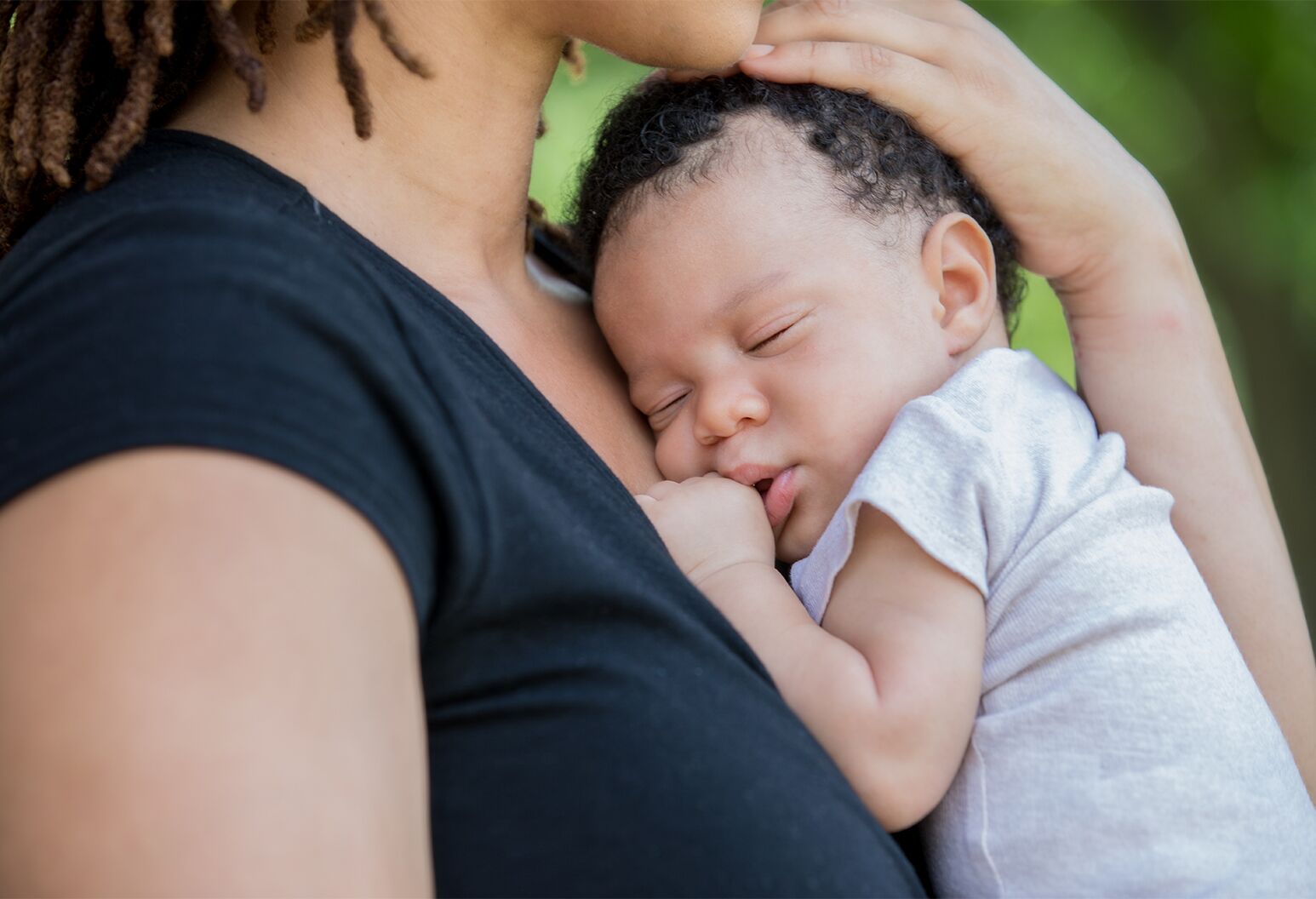parenting
My Ex Doesn't Want To Co-Parent

Looking into your baby’s eyes will deepen your relationship and help them recognize expressions.
4 min read
Not long after joining Northwell Health seven years ago, my husband and I welcomed our daughter to our growing family. After she arrived, I realized that the bonding experience with her was very different than with my son.
At the most basic level, bonding is how we connect to one another. In general, first-time parents—whether you carry a pregnancy, have a gestational carrier, or adopt a child—always have a lot of expectations and preconceived notions about parenthood and what bonding should be like.
My son, for example, arrived when I was working in a position that offered a few short weeks of maternity leave. It was challenging to juggle the daily grind and other demands with finding time to spend with him. But when my daughter was born, I felt that I actually had more time to sit with her. We had many skin-to-skin naps in her cozy green glider, which to this day I still can’t part with because of all the fond memories it brings. Research shows that early skin-to-skin contact stimulates the newborn’s brain, maintains body temperature, and helps transition through the first weeks of life.
I would argue that bonding is immeasurably valuable not only to the baby but to the parents as well. From an emotional standpoint, when a baby or child knows a loving adult is present and available, it positively impacts the child’s wellness. But bonding with baby isn’t one-size-fits-all, and that’s OK—everyone is different. Here are a few suggestions to help you get off on the right foot with your new little one.
Skin-to-skin most often refers to when a healthy, full-term baby is placed belly-side down on a new mother’s chest, stimulating the baby’s physical and emotional development. It helps encourage breastfeeding, improve blood oxygen levels, and can help babies maintain their body temperature and absorb and digest nutrients.
This type of cuddling helps new parents and their babies become familiar with one another and bond. But not every baby is born healthy or has their soon-to-be parent in the delivery room with them. For example, delivering prematurely may prevent you from immediately being able to perform skin-to-skin. A baby born at 24 weeks is not doing skin-to-skin (immediately), and a baby adopted from another part of the country or from abroad may not experience their parent for several weeks.
But there are other ways you can still bond.
A big part of parenthood is really being present: put the phone down, shut the TV off, tune out the social media distractions. Shut it down. Just be present and bond.
Perhaps the one bright spot for new parents during the new “normal” of COVID-19 is that you have a smaller subset of people who get to be with that baby. You have a tight nuclear family who are quarantining together and they actually get more time with their baby—including after delivery, where the absence of visitors can benefit you as parents.
As much as possible, look into your baby’s eyes during changing, feeding, and play. This helps your baby learn to read facial expressions and provides an up-close view of their favorite thing to look at (research proves newborns prefer and recognize faces above everything else).
While clinicians prefer breastfeeding for babies, the most important thing is to grow close to your infant, according to BMC Pregnancy and Childbirth. Whether you feed via breast or bottle, hold your baby close and focus on nurturing. We support all feeding choices, particularly the method that allows you to connect with your baby most seamlessly.
How each person defines bonding with their child is also different. Just because you didn’t do immediate skin-to-skin doesn’t mean that you are any less connected. Things like bath time, reading books, or mirroring your baby’s facial expressions and movements can all be ways of bonding with your new child—you just need to connect in a way that makes sense for you.
It’s also important to note that positive, loving connection with a parent or caregiver from infancy through a baby’s crucial early years of development can set the foundation for them to grow into what research calls “happy, independent, and resilient adults.” So remember, while bonding may look different for each family—or with each child, even—at the end of the day the most important thing is simply to give them your love, time, and support.
The Well is Northwell Health’s commitment to the future of health care. In this time of information overabundance, much of which is inaccurate, unhelpful, or even difficult to understand, Northwell Health is on a mission to make a difference as an honest, trusted, and caring partner. The site connects with consumers to provide them with personalized content that reduces their stress, makes them laugh, and ultimately feel more confident and capable on their healthcare journey.